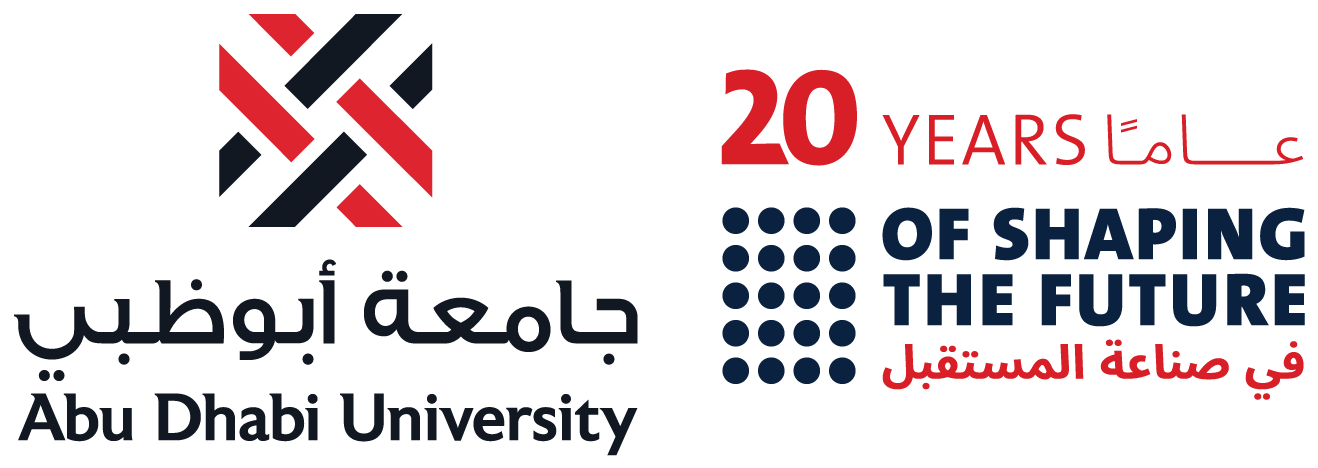July 22, 2024
The words 'blockchain' and 'cryptocurrency' are now firmly established into our vocabulary.
However, not all of us are clear on how exactly this transformative form of financial technology works, or fully grasp the huge array of exciting career opportunities it presents.
In 2024, blockchain technology continues to serve as the backbone for various industries, including everything from finance to healthcare and NFTs (non-fungible tokens). According to a study led by Prof. Khelifi from ADU and featured in a CNN article titled "Ancient treasures are being looted, but blockchain could help protect them" published on July 31, 2023, blockchain technology holds even promise in safeguarding ancient treasures.
Through this blog we will strive to demystify blockchain by explaining its mechanisms, technologies and advantages. We will also take a deep dive into how Abu Dhabi University is inspiring the next generation of leaders in financial technology.
What is blockchain
Simply put, a blockchain network is a huge, shared distributed ledger (or digital ledger) that records transactions. The advanced distributed ledger technology mechanism of the blockchain allows for secure and transparent information sharing within a business network, and it can be used to make data in any industry immutable, in other words, completely unchangeable or unalterable.
Each record on the blockchain is represented as a 'block' and securely linked together in chronological order. New blocks can be added to the blockchain once they have been validated by a consensus mechanism agreed upon by the network participants..
What is cryptocurrency
Bitcoin, Ethereum, Litecoin and Ripple are all types of cryptocurrency.
Often referred to as simply ‘crypto’, cryptocurrency is a form of digital or virtual currency that uses cryptography to secure transactions.
As it’s a digital payment system, cryptocurrency doesn't rely on banks to verify transactions. It allows everyone to send and receive payments from anywhere in the world, and each transaction is recorded in a public ledger. As we know from above, this secure ledger is otherwise known as the blockchain.
The first cryptocurrency to ever be invented was Bitcoin in 2009. While Bitcoin continues to be the most famous type of cryptocurrency, new forms of crypto are continuously being launched.
Advantages of blockchain and cryptocurrency
Distinctly different from traditional financial transaction methods, using blockchain technology brings many advantages for all kinds of businesses.
These include:
Decentralisation
Distributing data across a decentralized network of computers significantly mitigates the risk of centralized control and system failures. Unlike traditional systems, which rely on a single central server to store all data, the blockchain's distributed architecture, coupled with cryptographic techniques and consensus mechanisms, makes it highly resistant to hacking attempts and unauthorized alterations.
Trust
Even though transactions are carried out between parties that don't know each other, Cryptocurrencies enable complete trust between participants.
Security
The tamper-proof nature of the blockchain prevents fraud and unauthorised activity.
Reduced Costs
Blockchain eliminates the need for an intermediary such as a bank. This reduces fees and speeds up processes, most noticeably during international transactions.
Transparency
Unlike traditional financial systems, every participant in the blockchain can view all the transactions that have taken place.
Accessibility
Blockchain technology enables globally accessibility. It lowers entry barriers to the finance world and opens up opportunities to a wider audience. This includes regions that have limited access to traditional banking services.
Career opportunities in blockchain
Aside from the obvious roles such as blockchain developers and cryptocurrency creators, the rise of blockchain has led to the emergence of all kinds of unique careers in cryptocurrency development, support and trading.
These jobs include cryptocurrency technical writers, financial analysts, Blockchain solutions developers, web developers, cryptocurrency traders and many more interesting and fulfilling roles.
Fintech at Abu Dhabi University
At Abu Dhabi University, we are committed to enhancing our students' knowledge of blockchain technology and innovation, and strengthening blockchain education, research and entrepreneurship within the region.
Along with offering a Bachelor's degree in Business Administration in Finance and Fintech, we also teamed up with 5ire, the fifth generation blockchain ecosystem, to launch our own blockchain academy.
Offering students the chance to complete professional certifications, the Abu Dhabi University and 5ire blockchain academy also delivers training programmes for ADU faculty and staff members.
Specifically focused on sustainability and accessibility, the academy supports projects on blockchain technology, and provides resources for students and researchers who are interested in developing and commercialising projects in the fintech industry.
Last year, we hosted our first Blockchain Hackathon in collaboration with 5ire, and in partnership with MetaDecrypt, the industry-leading Metaverse and Blockchain development company.
The groundbreaking event introduced participants to Web3 and blockchain technology, and provided them with expert guidance, valuable resources and networking opportunities. Designed to ignite every student’s critical thinking and problem-solving skills, participants were also invited to apply their creativity and ideas, and develop innovative solutions for real-world challenges.
As you can see, the world of blockchain is changing rapidly and filled with transformative career opportunities.
To find out more about our Bachelor’s degree in Business Administration in Finance and Fintech, please click here.
Prof. Adel Khelifi
Professor of Computer Science and Information Technology
